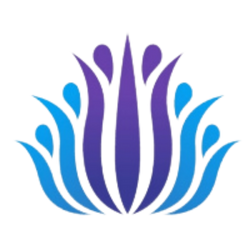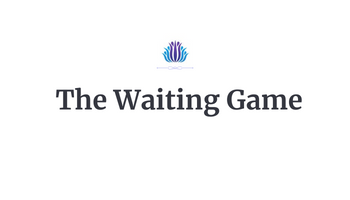Have you ever gotten an action photo taken? You know the type…you decide you want a picture of yourself in mid-air? Or mid-run? Or mid…whatever? It’s oddly satisfying when you get it just right. There you are, captured in a photo that is paradoxically static… and always in movement. To look upon it conjures a strange sort of anticipation. It’s as though you, the viewer, can’t help but imagine that if you just look at the image long enough, you’ll catch the figure in the photograph hitting the ground.
That’s how I feel right now. Like life is on pause…but mid-action.
Much of my life is the same as it ever was. Except that it isn’t. I am connected to my people. Except that I’m not. I still go to work. But I’m not working at a maximum level of productivity. I was even talking with a colleague about this. He talked about how he almost feels like he isn’t pulling his weight.
“I want to contribute in a meaningful way. I keep asking my superiors…How can I help? What more can I be doing? But they just keep telling me to sit tight. To wait. Wait until we have a plan. But no one seems to have a plan for what’s going to happen next. It’s leaving me thinking…when is everyone going to stop and simply agree that maybe I don’t need to be here at all?”
I can certainly relate to that. I’m used to juggling several jobs at once. I’m used to being pulled in a variety of directions. But now? I’m not exactly standing still. But I’m definitely not moving. Like an action photo…I am on-pause but mid-motion.
I want to see my 95-year-old grandmother. But I can’t. I don’t want to risk it. In fact, I want to visit my whole family in California…but again…I don’t want to risk the possibility of getting it (or MUCH worse…spreading it). I want to go swimming with friends in the midst of this heat…but I know better than to go and mingle with crowds of other people itching to cool off near the water’s edge. I want to put together large projects and courses…but that feels difficult. Should I really revamp all education materials to be virtual? Only some of them? Should we still keep some classes open and just practice social distance? If I put together a series right now that runs into the fall…maybe the fall will have covid cases that are far WORSE than they are even now. Maybe by then, we will be in another sort of shut down?
I speak with friends and they all seem to be having a similar experience. The only difference is that, in most cases, they are in far more challenging situations. Mothers who are stuck at home with their small children. No time to take a breath. No space where they can take their children to play out some of their energy. No guarantee that the incomes these families are relying on will continue to roll in. Or there are couples who are unemployed – uncertain when their unemployment benefits will run dry or whether they will find work before that happens.
It’s not as if we haven’t endured challenging times before. In this country, alone, we have gotten through the great depression, two world wars, political unrest, a terrorist attack…just to name a few. But the difference is that in those cases, we were usually able to find momentary relief. Kelly McGonical, in her research on stress, revealed that when we feel stress we produce adrenaline and cortisol…which is why we feel so amped up. But we also produce oxytocin – a bonding hormone that encourages us to connect with others. This is the upside to stress.
Except… right now? It’s not such an upside. We want to bond (thanks oxytocin). We want to come together. We want to connect in celebration on the fourth of July. We want to come join forces in solidarity to help fight injustice (thanks adrenaline and cortisol). But it’s the last thing we should be doing…because every time we gather together, we amplify the problem.
THIS is the paradox of where we all stand.
Time is dragging on painfully slowly…time is whizzing by at warp speed
I want to DO something…I want to stand still.
I want to connect…I want to retreat.
I want to celebrate…I want to mourn.
I want to go back to normal…I want a new normal.
It feels like we have all lept off a kind of cliff…directly into a thick fog. We have no idea whether our feet will land on the other side of this thing, or if we will all drop into a pit of some new low. And yes…of course…life was always uncertain. We were always floating down a river with an unknown destination. It’s just that…right now…we are being asked to stay perfectly still amidst the flow of white water rapids. And we are all being asked to row in our own boat. With no oars.
So we just wait. Hold our breaths.
And hope.
Naturally, as a health coach, my instinct was to ask….How can anyone thrive in these circumstances? What can we do to not just stay sane, but maybe even have some form of post traumatic growth?
The answers continue to be painfully simple (which explains why they are sometimes so difficult to implement)…
- Slow down and use your body as a resource. Feel into what is happening. We have a tendency to want to move away from discomfort and toward pleasure. But in doing so, we often overlook something vitally important. When you notice yourself get uncomfortable and overwhelmed, rather than rushing to numb it with an easy button (alcohol, sugar, social media) take a moment and just sit still. What are you feeling? Where in your body do you feel it? Get as specific as you can. Ironically, moving toward discomfort and getting curious about it can help us move through it more quickly. Avoiding it, pretending you can wrestle through it, or insisting you are “fine” generally makes it persist.
- If at all possible, MOVE. Right now, we are being asked to remain at a moderate to high level of vigilance. It might not be perpetual “life and death” but it’s more like a constant level of buzzing. That feeling of being constantly on-edge? That’s adrenaline and cortisol. Those hormones are increasing the energy going out into your body and making your heart rate go up. The best thing to do for that? Exercise. Fidget. Walk. Run. Do an exercise video online. Anything that makes use of your body’s stress hormones. That movement both utilizes the stress being held in your body and produces endorphins (which behave as the body’s best pain killers).
- Take some time for focused relaxation and meditation. Focusing your attention in this way helps move you away from catastrophizing stories and back into the present moment. You may not know what is coming next…but are you okay right now? How about now? And now? One of the easiest exercises for this is simply watching the breath. Doing this also helps improve functioning in your prefrontal cortex, which improves your decision making skills. It can be sooooo tempting to make rash decisions when in the midst of panic. But as a rule, the quality of the outcome from our decisions tends to correlate with the quality of the mental state we had when making that decision. In other words, when making decisions from a place of fear, the outcomes from those decisions are quite often unproductive. When you get your brain into a state that is more at-ease, the quality of the decisions you make will likely be of a higher caliber…thus making the outcome more likely to better.
- Use technology to connect with loved ones. Yes…of COURSE it would be better if you could snuggle up with the people you care about. But when it comes to Covid…sharing isn’t exactly caring. This is one serious benefit to living in today’s time. We have the means to connect with technology. This will help feed the craving for connection that oxytocin kick is giving you. If there is one thing we should all be grateful for, it is that we have these tools at our disposal. It’s not a forever substitute. But it’s miles ahead of nothing.
- If it’s possible, try to get some time to yourself. Even if it is just five minutes. Time for daydreaming, staring at the clouds, going for a slow walk in the neighborhood…it can do wonders to help recharge our tired brains. This does not have to be productive time. It’s useful to remember that boredom and mind wandering have benefits for recharging. They can even improve our capacity for creativity and problem solving. So if you’re feeling guilty for leaving your family for ten minutes while you catch your breath…remember, you’re gifting them with a better version of you when you come back.
- Spend time on things that bring you joy (things you can do at home or socially distanced, of course). One of the best ways for us to lose time is to lose ourselves in an enjoyable activity. Engaging in it on a regular basis also helps promote the possibility of experiencing “flow”…that peak experience we feel when it’s as though the “I” disappears and all there is left is the activity, itself. We are naturally curious and creative creatures. While it may feel frivolous to spend money on arts and crafts and spend time with your family (or alone, as in my case) with a puzzle on the table…it is not. In a time when everything feels uncertain, and it can feel like the plug can be pulled at any moment…why NOT devote some time for simple pleasures? I don’t mean to get morbid, here…but if you thought you might possibly die today, don’t you want to go out doing something you enjoy? Something that causes no harm to others?
- Limit your exposure to TV and the News. That isn’t to say you cannot look at ANY news. Just be deliberate and discerning about your sources and how much you take in. News that speaks to health and safety protocols? That’s probably very useful. News that is constantly reporting on the latest covid cases? Probably not so useful.
- In short…think about today. Think about right now. Avoid thinking three days from now (and run like crazy away from thinking 3 months from now). The fastest way to overwhelm is by way of planning for a far-away future. The fastest way to contentment is to be right here, right now.
I’d love to hear what your experience has been like. Can you relate to this? Do you ever feel like you are equal parts in motion…while also perpetually moving? What do you do to keep yourself on the ground? What do you do to tap into joy?

